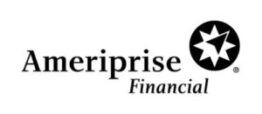

Real Estate Investment Trusts or REITs are companies, which own and manage income-producing property (e.g.hotels, hospitals, & office buildings) or are involved in real estate financing. REITs are either publically traded, non-exchange traded, or privately traded. REITs provide investors with real estate exposure, but unlike other real estate investments, REITs are often entirely illiquid. REIT companies must distribute at least 90% of taxable income; however, in instances where income does not meet distribution demand, REITs often resort to paying distributions out of borrowed money. REIT offerings accounted for upwards of $500 billion in 2012. In light of these benefits, REITs have become a widely used and widely misunderstood investment vehicle.
REIT entities do not list non-traded REITs on a public securities exchange; they often have limited liquidity, lengthy holding periods, restricted redemption options, and variable withdrawal periods determined by issuer specific programs.
Certain types of REITs hold additional risks for investors. Specifically, non-traded REITs are especialIy risky through limited redemption programs, high fees and commissions, and internal conflicts of interest. Unlike publicIy traded REITs, listed on national stock exchanges, market priced, and freely traded, non-traded REITs often have limited redemption programs and minimum reporting requirements. Until recently, non-traded RElTs were valued only sporadicalIy-often maintaining an artificialIy high dividend rate.
Furthermore, non-traded REITs have high sales commissions and offering fees that typically range from 15-18%. At their core, Non-Traded REIT products operate through an immensely complex affiliated and subsidiary structure rife with conflict. Although Non-Traded REITs may diversify a portfolio and provide dividend income if utilized by a properly trained agent, comprehensive supervision and training by brokers is required. 
LPL Finacial Charged by Massachusetts Security Division
In December 2012, in connection with the sale of non-traded real estate investment trusts (non-traded REITs) LPL Financial Corporation was charged by the Enforcement Section (Enforcement Section) of the Massachusetts Securities Division of the Office of the Secretary of the Commonwealth seeking an order (a) requiring LPL Financial, LLC to permanently cease and desist from committing any further violations of the Act and Regulations, (b) censuring LPL Financial, LLC, (c) requiring LPL Financial, LLC to make full restitution to Massachusetts investors who were sold non-traded REITs in violation of Massachusetts and prospectus requirements, (d) requiring LPL Financial, LLC to pay an administrative fine in an amount and upon such terms and conditions as a Hearing Officer may determine, and (e) taking any other appropriate actions against LPL Financial, LLC, which may be in the public interest and necessary for the protection of Massachusetts investors.
The Complaint Against LPL Finacial
According to the Massachusetts Complaint, “on paper, LPL set forth stringent requirements for the sale of non-traded REITs, especially through LPL’s Compliance Manuals and Written Supervisory Procedures. In practice, LPL failed to review properly sales of non-traded REITs. While purporting to conduct a thorough review of offering documents, LPL overlooked prospectus requirements in numerous sales of non-traded REITs. LPL’s lack of adequate training and supervision only exacerbated problems resulting from LPL’s oversight of non-traded REIT prospectus and Massachusetts state requirements. Both LPL employees responsible for the review and approval of non-traded REIT transactions and LPL Representatives facilitating sales were under-educated and under-supervised with respect to non-traded REIT transactions”.
In total, the Enforcement Section reviewed five-hundred ninety seven (597) Massachusetts resident transactions in seven (7) non-traded REIT products with over twenty eight million dollars ($28,000,000) invested. From 2006 through 2009, LPL received a gross commission of at least l.8 million dollars on non-traded REIT sales. Out of the five-hundred ninety-seven (597) transactions the Enforcement Section reviewed, the Enforcement Section uncovered five-hundred sixty-nine (569) non-traded REIT transactions made in violation of prospectus requirements. Out of the five-hundred ninety-seven (597) transactions the Enforcement Section reviewed, the Enforcement Section uncovered at least seventy-seven (77) non-traded REIT transactions made solely in violation of Massachusetts concentration requirements. In total, at least ninety-five percent (95%) of all non-traded REIT transactions reviewed contained violations of prospectus and Massachusetts requirements.
The Enforcement Section focused on seven non-traded REIT products approved for sale by LPL including, Inland American, Cole Credit Property Trust II, Inc. (Cole Credit II), Cole Credit Property Trust III, Inc. (Cole Credit III), Cole Credit Property 1031 Exchange (Cole 1031), Wells Real Estate Investment Trust II, Inc. (Wells II), W.P. Carey Corporate Property Associates 17 (CPA 17), Dividend Capital Total Realty (Dividend Capital). Wells Capital, Inc., Cole Capital Corporation, W.P. Carey & Co., LLC, and Dividend Capital Total Advisors Group.
On February 5, 2013, LPL submitted an Offer of Settlement (Offer) to the Division for the purpose of disposing the allegations Respondent LPL Financial LLC agrees to permanently cease and desist from conduct in violation of the Act and Regulations in the Commonwealth Respondent LPL Financial LLC agrees to offer restitution to all LPL Financial LLC customers who were Massachusetts residents at the time they purchased a non-traded REIT in their LPL Financial LLC account (regardless of whether the shares of the non-traded REIT are presently held in an LPL Financial LLC account or the individual or entity no longer resides in Massachusetts) between January 1, 2005 and the present. In addition to the $28 million in restitution, LPL was fined $500,000 or was ordered to undertake remedial measures.
Massachusetts ought to be commended for taking such action on behalf of its citizens.
However, the same violations found by Massachusetts in connection with the sale of these REITs to its citizens, also applies to citizens of other states, not covered by the Massachusetts action. For example, the states of Missouri, Nebraska, Ohio and Pennsylvania prohibit the sale of non-traded REITs to their Residents unless that can also meet the minimum suitability standards and their investment not exceed ten percent of their liquid net worth.
Injured Investors in these states will apparently have to fend for themselves.
In 2010, FINRA reminded its members in Notice to Members 10-22:
The Securities and Exchange Commission (SEC) and federal courts have long held that a BD that recommends a security is under a duty to conduct a reasonable investigation concerning that security and the issuer’s representations about it. This duty emanates from the BD’s “special relationship” to the customer, and from the fact that in recommending the security, the BD represents to the customer “that a reasonable investigation has been made and that [its] recommendation rests on the conclusions based on such investigation.”
Failure to comply with this duty can constitute a violation of the antifraud provisions of the federal securities laws and, particularly, Section 17(a) of the Securities Act, Section 10(b) of the Securities Exchange Act and Rule 10b-5 thereunder. It also can constitute a violation of FINRA Rule 2010, requiring adherence to just and equitable principles of trade, and FINRA Rule 2020, prohibiting manipulative and fraudulent devices.
FINRA Notice to Members 10-22 (April 2010).
FINRA Reminders to Members
FINRA also reminded its members that “In order to ensure that it has fulfilled its suitability responsibilities, a BD in a Regulation D offering should, at a minimum, conduct a reasonable investigation concerning”:
- the issuer and its management
- the business prospects of the issuer
- the assets held by or to be acquired by the issuer
- the claims being made
- the intended use of proceeds of the offering
A BD must conduct a reasonable investigation in connection with each offering, notwithstanding that a subsequent offering may be for the same issuer. (Id. at 5).
With respect to the supervision of the sale of private placements, FINRA has reminded its members that “A firm that engages in Regulation D offerings must have supervisory procedures under Rule 3010 that are reasonably designed to ensure that the firm’s personnel, including its registered representatives:
- engage in an inquiry that is sufficiently rigorous to comply with their legal and regulatory requirements
- perform the analysis required by NASD Rule 2310
- qualify their customers as eligible to purchase securities offered pursuant to Regulation D
- do not violate the antifraud provisions of the federal securities laws or FINRA rules in connection with their preparation or distribution of offering documents or sales literature
FINRA Notice to Members 10-22 at 7 (April 2010).
If you have lost money as the result of the inappropriate or unsuitable recommendation of a non-traded Real Estate Investment Trust or REIT by your stockbroker or investment professional, or your broker’s failure to conduct due diligence with respect to the sale of these securities you should consult with a lawyer.
Guiliano Law Group
If you have been the victim of securities fraud you should consult with an attorney. The practice of Nicholas J. Guiliano, Esq., and The Guiliano Law Group, P.C., is limited to the representation of investors in claims for fraud in connection with the sale of securities, the sale or recommendation of excessively risky or unsuitable securities, breach of fiduciary duty, and the failure to supervise. We accept representation on a contingent fee basis, meaning there is no cost unless we make a recovery for you, and there is never any charge for a consultation or an evaluation of your claim. For more information contact us at (877) SEC-ATTY.








